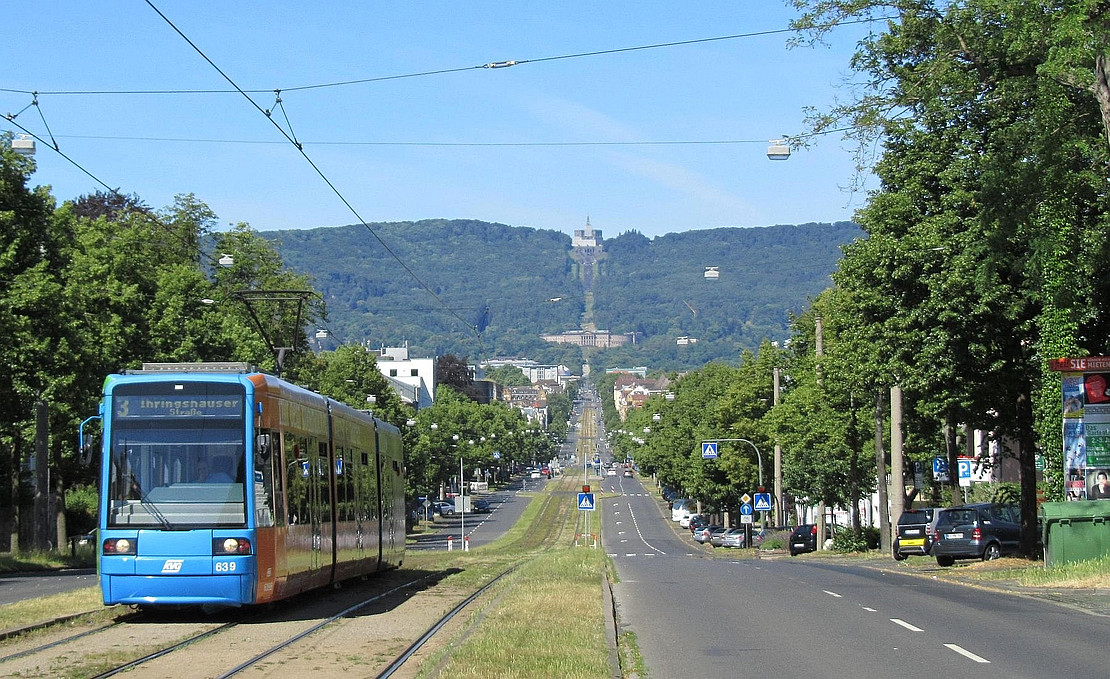This page contains automatically translated content.
Building a bridge to the hotel - linking tourism and transport planning
 Image: Qimby/Dirk Schmidt.
Image: Qimby/Dirk Schmidt.On average, every seventh trip in the city of Kassel is made by visitors each year. In typical tourist cities (Heidelberg, for example), this proportion is estimated to be even higher. At the same time, it is predicted that tourist traffic will even increase disproportionately in the future. Its importance in terms of climate and environmental protection is therefore also increasing. "Tourist traffic has so far been largely neglected in traffic planning and mobility research. The established surveys on mobility behavior usually focus on everyday mobility," says Prof. Dr.-Ing. Carsten Sommer, Department of Transportation Planning and Systems. In a project funded by the German Research Foundation (DFG), he and his team now want to develop a model-based planning tool that will improve the quality of traffic forecasts.
Tourist traffic consists of the arrival and departure as well as the routes at the destination of day visitors and (short) vacationers. In the research project, the traffic planners want to develop a multilevel model that first maps the number of tourists, their mode of arrival, and their choice of overnight destination. This is followed by modeling the mobility behavior at the destination. In doing so, it is necessary to divide the tourists into behaviorally similar groups. For two of these groups, the developed model approach will be applied exemplarily for the city of Kassel.
The results of the project should fundamentally contribute to a stronger and more targeted influence on tourist traffic within the framework of strategic traffic planning. Through the model, different measures can be simulated and the effects after their implementation can be estimated with a higher accuracy. The three-year research project will run until July 2022 and will be funded by the DFG with a sum of 284,000 euros.
Contact:
Prof. Dr.-Ing. Carsten Sommer
University of Kassel
Department of Transportation Planning and Systems
Phone: 0561 804-3381
E-mail: c.sommer[at]uni-kassel[dot]de